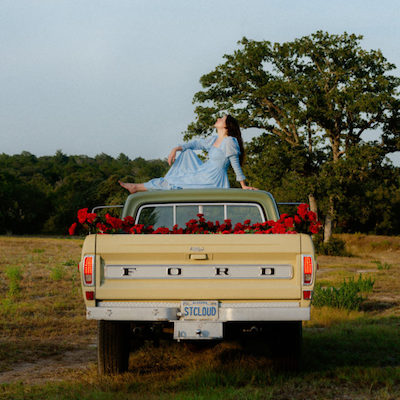
Secret Meeting score: 84
by Dave Bertram
After breaking into another twelve bars of a dark, menacing, reverb-drenched outro at this year’s Primavera festival in Barcelona, one teenage girl turned to what this writer presumed was her father with almost uncontrollable exuberance – “I think they might be my favourite band”.
The track was the brilliantly haunting Alison, the lead song from Slowdive’s 1993 sophomore record, Souvlaki. Met with muted response as the UK held its breath for the Britpop tsunami, the rebirth of the Reading five-piece shouldn’t fail to bring a smile to the most staunch and cynical music fan.
Formed in 1989 with co-songwriters Rachel Goswell and Neil Halstead barely out of school, the band’s immersive early EPs were met with widespread acclaim. Their huge wall of sound was one you could fall helplessly into, awash with shy, self-effacing melodies that melted into a musical backdrop that saw no one instrument dominate.
Albums Just for a Day and Souvlaki followed, but before Pygmalion hit the shelves, the band had been kicked off the small pedestal the British music press had given them. Their introspective stage presence was re-cast as smug and self-indulgent, and they were turfed onto the wrong side of the class divide as Oasis, Blur and Suede landed with a punchier directness than shoegaze could ever offer. With NME and Melody Maker calling all the taste making shots, nobody wanted to be seen as a Slowdive fan.
Fast forward almost 25 years and the musical landscape is rather different. Their records and signature sound have endured where others have fallen away, and the influence of shoegaze is now possibly greater than it’s ever been. Those previously-held attitudes have worn away like a cliff befalls the stormy seas and you can hear the band’s distinctive unwavering drones and mumbled melodies everywhere. It’s sewn into the backdrops, arrangements and mixes of Tame Impala, Deerhunter, Unknown Mortal Orchestra, Mogwai, M83, Beach House and Grizzly Bear to name just a few – once you open it up, there are a chasm of artists indebted.
Last year’s self-titled return was released to more critical acclaim than the band ever received in their past life, and festival slots are attracting numbers that surge past the 25,000 mark. It’s a warming story that should crack the coldest of hearts – its impact clearly not lost on our protagonists who seemed almost in tears at the reaction to their Primavera set in early June. But rather than pounce on their return, we want to re-introduce you to the record that imbued so much excitement in that young teenage girl – Souvlaki.
Arguably, this album carved out what shoegaze came to signify – huge swells of distorted guitars, muted percussion and fuzzy textures set against intertwined male and female harmonies. Lyrics take a back seat to holistic cascades of noise. Vocals are used as just another instrument, and you could be forgiven for having the impression the record is purely instrumental. This is no better exemplified than on one of the album’s primary standouts, the raw Souvlaki Space Station, which leans far more on the musical miasma than Goswell’s revolving vocal lines.
Escapism is at the heart of Souvlaki, in both voice and sound. Lead track Alison is joyfully free, yet depressingly foreboding, and explodes into a chorus beset by Halstead and Goswell calling, ‘Alison I’ll drink your wine, I wear your clothes when we’re both high’ – the major chord switch effuses the same feeling of falling that the vocal delivers.
The swirling opener leads into Machine Gun, which powerfully ambles with intertwined guitar and synth lines that draw stark parallels to My Bloody Valentine’s No More Sorry. Goswell and Halstead trade off falsetto vocal duties before a single acoustic guitar joins the mix to drive and build the dissonance and delay.
When the Sun Hits harkens back to the gothic jangle of the 80s before breaking into the clouds, shattering the track open with a shimmery curtain of synth, guitar, drummer Simon Scott’s patient pacing and the haunting backing ‘Hey, Hey, Hey’. Coming back down to earth, Here She Comes temporarily ditches the wall of sound, Halstead alone for just two minutes longing for somewhere otherworldly – ‘It’s so lonely in this place, so cold I don’t believe, where nobody knows my name.’
The album’s original UK version ends with Dagger – a blunt-ended acoustic ode, Halstead’s vocals cut up with his own, the bare plink of piano in the background as he solemnly intones, ‘You know I am your dagger/ You know I am your wound.’
In the shadow of acts that have proudly adopted the shoegaze moniker in the years since, this album truly shines. It’s the revival of those soundscapes that make the band far more prescient than the tired outfit that lack ideas they were cast off as in the early nineties, and one whose music continues to inspire both young and old. They may be one of the biggest influences you hear today, but they’ve also found their time.






Pingback: Slowdive – Blueprint Festival – 22nd July 2018 – Secret Meeting